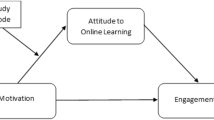Abstract
Early career psychologists (ECPs) are considered a distinct professional group that faces unique career challenges. Despite recent organizational efforts to increase engagement of these individuals, little is known about the professional development needs and training interests of ECPs, particularly within psychology’s subfields. As such, this study assessed ECPs’ professional development needs and training interests in school psychology, as well as their perceptions of how well their professional organization was in meeting their needs. One hundred ECP and graduate students responded to an online survey. Results indicated that participants had a strong interest in a variety of professional development topics, including developing short- and long-term career plans, the publication process, obtaining licensure, and work-life balance. Further, participants endorsed interest in various training formats, including brief workshops, ECP mentoring programs, and conference symposia. Participants stated that their professional organization currently met their needs moderately well, but reported seeking professional development support via a number of other sources. Researchers, faculty, and graduate students reported significantly higher perceptions of their professional organization than clinicians. Findings suggest areas for desired professional development and training format. Implications for professional organizations serving ECPs and school psychology graduate programs are addressed.
Similar content being viewed by others
References
American Psychological Association (2016 Early career. Retrieved January 6, 2016, from http://www.apa.org/careers/early-career/.
American Psychological Association, Center for Psychology Workforce Analysis and Research (2007). 2005 doctorate employment survey. Washington, DC: Author.
American Psychological Association, Committee for Early Career Psychologists (2006). 2006 annual report. Retrieved January 6, 2016, from http://www.apa.org/careers/early-career/committee/index.aspx.
Austin, A. E., Sorcinelli, M. D., & McDaniels, M. (2007). Understanding new faculty: background, aspirations, challenges, and growth. In R. P. Perry & J. C. Smart (Eds.), The scholarship of teaching and learning in higher education: an evidence-based perspective (pp. 39–92). New York: Springer.
Bauman, S. (2008). To join or not to join: school counselors as a case study in professional membership. Journal of Counseling and Development, 86, 164–177.
Braxton, H. H., Volker, M. M., Loftis, C., Williams-Nickelson, C., Schulte, T. J., Kassinove, J. I., & Scime, M. (2004). What do students want? Perspectives from the front line of doctoral training in professional and combined-integrated psychology. Journal of Clinical Psychology, 60, 969–990.
Cassin, S. E., Singer, A. R., Dobson, K. S., & Altamaier, E. M. (2007). Professional interests and career aspirations of graduate students in professional psychology: an exploratory survey. Training and Education in Professional Psychology, 1, 26–37.
Clopton, K. L., & Haselhuhn, C. W. (2009). School psychology trainer shortage in the USA: current status and projections for the future. School Psychology International, 30, 24–42.
Cohen, J. W. (1988). Statistical power analysis for the behavioral sciences (2nd ed.). Hillsdale, NJ: Lawrence Erlbaum Associates.
De Vaney Olvey, C., Hogg, A., & Counts, W. (2002). Licensure requirements: have we raised the bar too far? Professional Psychology: Research and Practice, 33, 323–329.
Dodgen, D., Fowler, R. D., & Williams-Nickelson, C. (2003). Getting involved in professional organizations: a gateway to career advancement. In M. J. Prinstein & M. D. Patterson (Eds.), The portable mentor: expert guide to a successful career in psychology (pp. 221–233). New York, NY: Kluwer Academic/Plenum.
Fagan, T. J., Ax, R. K., Liss, M., Resnick, R. J., & Moody, S. (2007). Professional education and training: how satisfied are we? An exploratory study. Training and Education in Professional Psychology, 1, 13–25.
Good, J. J., Keeley, J., Leder, S., Afful, S., & Stiegler-Balfour, J. J. (2013). Supporting our junior faculty: assessing the concerns and needs of early career psychologists. Teaching of Psychology, 40, 328–333.
Green, A. G., & Hawley, G. C. (2009). Early career psychologists: understanding, engaging, and mentoring tomorrow’s leaders. Professional Psychology: Research and Practice, 40, 206–212.
Kratochwill, T. R., Shernoff, E. S., & Sanetti, L. (2004). Promotion of academic careers in school psychology: a conceptual framework of impact points, recommended strategies, and hopeful outcomes. School Psychology Quarterly, 19, 342–364.
Lee, C. M., Reissing, E. D., & Dobson, D. (2009). Work-life balance for early career Canadian psychologists in professional programs. Canadian Psychology, 50, 74–82.
Mistler, B. J. (2007). What am I really: my degree versus the professional me. Counseling Today, 49, 12–13.
Nagle, R. J., Suldo, S. M., Christenson, S. L., & Hansen, A. L. (2004). Graduate students’ perspectives of academic positions in school psychology. School Psychology Quarterly, 19, 311–326.
Smith, N. G., Keller, B. K., Mollen, D., Bledsoe, M. L., Buhin, L., Edwards, L. M., & Yakushko, O. (2012). Voices of early career psychologists in Division 17, the Society of Counseling Psychology. The Counseling Psychologist, 40, 794–825.
Solem, M. N., & Foote, K. E. (2006). Concerns, attitudes, and abilities of early-career geography faculty. Journal of Geography in Higher Education, 30, 199–234.
Weiss, L., & Weiss, B. W. (1992). Personal reminiscences of a psychologist married couple on changing perspectives on 20 years of professional psychology. Professional Psychology: Research and Practice, 23, 349–352.
Westefield, J. (2011). Understanding division membership. Washington, DC: Presentation at the APA Annual Convention.
Yakushko, O., Wang, S. C., & Warrior, A. (2012). The future of our organizations: students and early career professionals. The Counseling Psychologist, 40, 723–729.
Author information
Authors and Affiliations
Corresponding author
Ethics declarations
All procedures performed in studies involving human participants were in accordance with the ethical standards of the institutional and/or national research committee and with the 1964 Helsinki declaration and its later amendments or comparable ethical standards.
This article does not contain any studies with animals performed by any of the authors.
Conflict of Interest
The authors declare that they have no conflict of interest.
Rights and permissions
About this article
Cite this article
Arora, P.G., Brown, J., Harris, B. et al. Professional Development Needs and Training Interests: a Survey of Early Career School Psychologists. Contemp School Psychol 21, 49–57 (2017). https://doi.org/10.1007/s40688-016-0108-8
Published:
Issue Date:
DOI: https://doi.org/10.1007/s40688-016-0108-8




